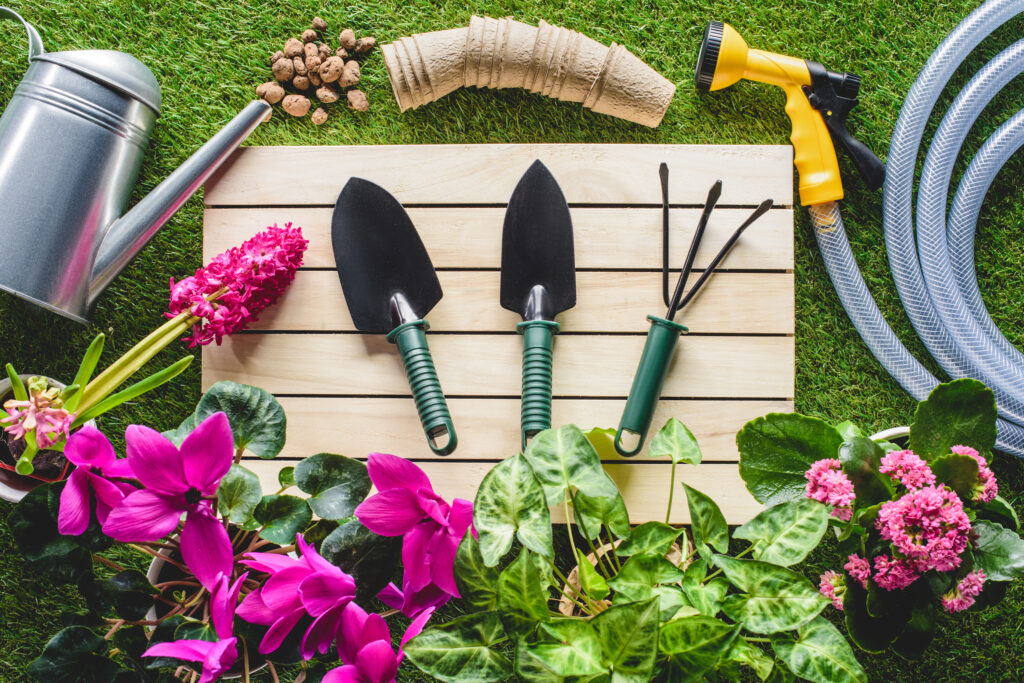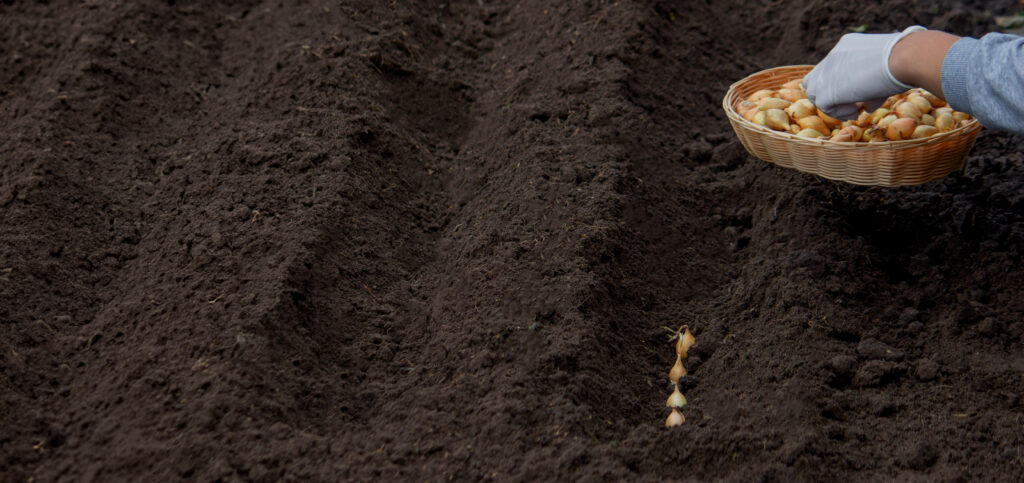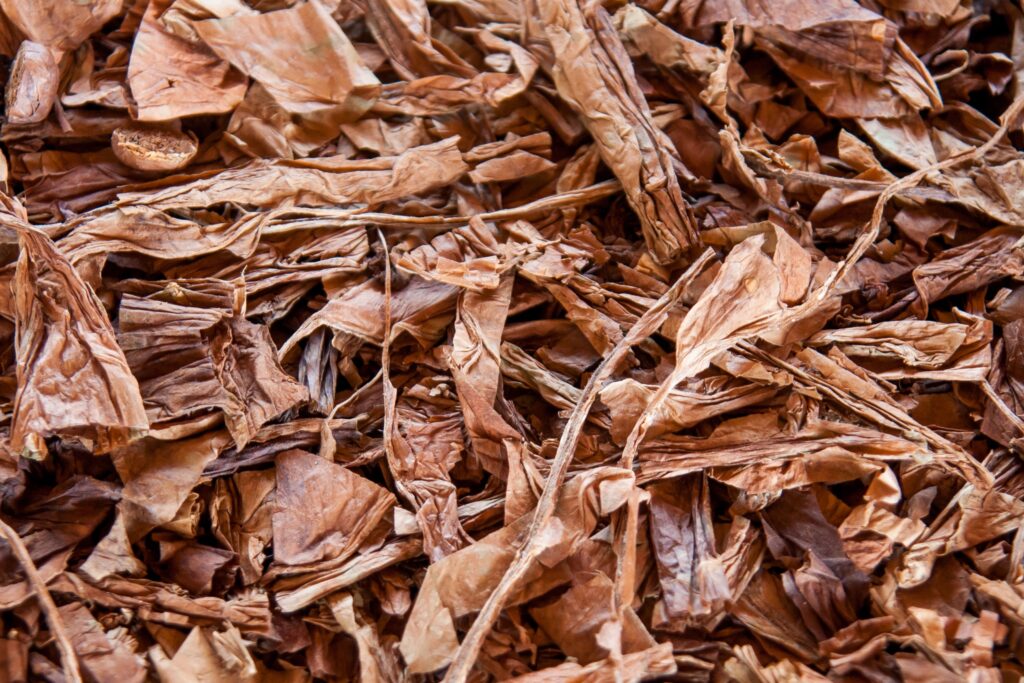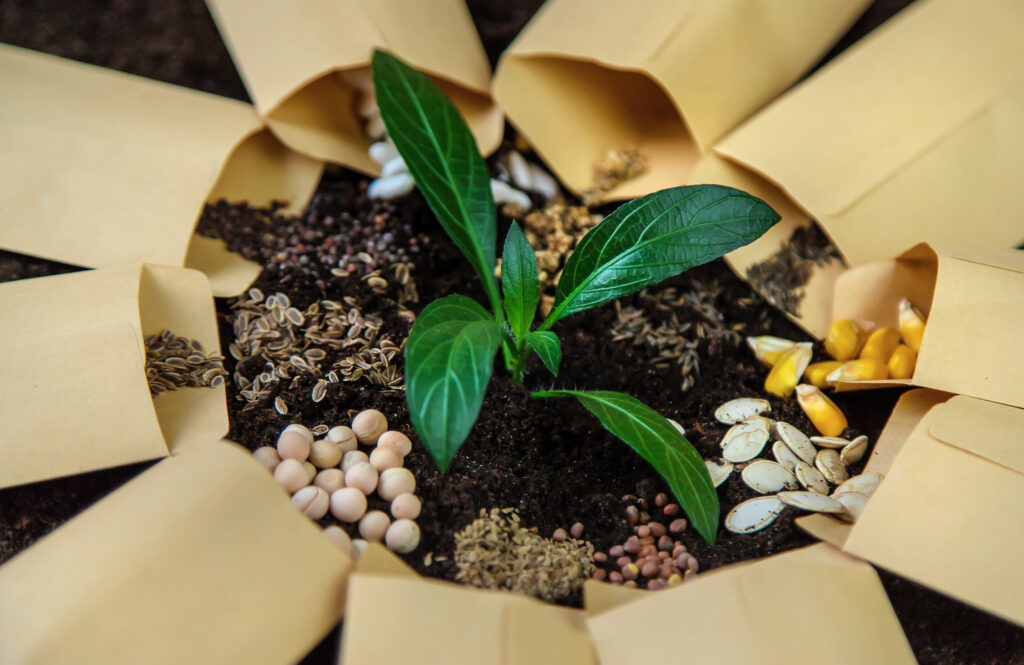Introduction
Organic gardening isn’t just about avoiding synthetic chemicals; it’s also about using the right tools and products to help your garden flourish naturally. Whether you’re growing vegetables, herbs, or flowers, having the right equipment can make organic gardening easier, more efficient, and more sustainable. In this guide, we’ll cover the must-have organic gardening tools and essential products that every gardener needs.

Hand Tools: The Basics of Organic Gardening
Every organic gardener should have a set of reliable hand tools for tasks like digging, planting, weeding, and pruning. These tools are the foundation of your garden maintenance.
Essential Hand Tools:
- Trowel: A sturdy trowel is perfect for digging small holes, planting seeds or seedlings, and transplanting plants.
- Pruners: Pruning shears (or hand pruners) help you trim dead branches, harvest produce, and shape plants to encourage healthy growth.
- Weeder: A hand weeder is a must for organic gardening to remove weeds naturally without the use of herbicides.
- Hand Fork: Also called a garden fork, this tool is ideal for aerating the soil and loosening compacted areas.
- Garden Gloves: Protect your hands from soil, thorns, and blisters with a pair of durable, comfortable gloves.
Soil Amendments: Boost Soil Health Organically

Healthy soil is the foundation of any thriving organic garden. Instead of synthetic fertilizers, organic gardeners rely on natural soil amendments to improve fertility, structure, and moisture retention.
Essential Organic Soil Amendments:
- Compost: Compost is an excellent all-purpose soil amendment that adds organic matter, improves soil structure, and provides essential nutrients.
- Worm Castings: These nutrient-rich castings from earthworms help improve soil health by adding beneficial microbes and boosting plant growth.
- Bone Meal: A natural source of phosphorus, bone meal supports root development and enhances flower and fruit production.
- Seaweed Fertilizer: This organic liquid fertilizer provides plants with trace minerals and helps strengthen their defenses against pests and diseases.
Mulch: Protect and Nourish Your Soil

Mulch is a valuable tool for organic gardeners because it helps conserve moisture, suppress weeds, and regulate soil temperature. Organic mulches also break down over time, enriching the soil with nutrients.
Types of Organic Mulch:
- Straw or Hay: These lightweight mulches are great for vegetable gardens and help retain moisture while preventing weeds.
- Wood Chips or Bark: Ideal for flower beds and around trees, wood chips help insulate the soil and gradually decompose to add organic matter.
- Grass Clippings or Leaves: Free and readily available, these organic materials make excellent mulch for garden beds.
- Cocoa Bean Hulls: A nutrient-rich mulch option, cocoa bean hulls provide organic matter while offering a pleasant chocolatey aroma.
Composting Tools: Create Your Own Organic Fertilizer
Composting is one of the best ways to reduce waste and create nutrient-rich fertilizer for your garden. A good composting system will turn kitchen scraps, leaves, and yard waste into valuable compost in just a few months.
Composting Essentials:
- Compost Bin or Tumbler: A compost bin or tumbler keeps your compost contained, speeds up decomposition, and helps manage odors.
- Compost Aerator: Regularly aerating your compost pile allows oxygen to reach microorganisms, speeding up the decomposition process.
- Kitchen Compost Pail: This small container lets you collect food scraps like vegetable peels, coffee grounds, and eggshells for your compost pile.
Organic Pest Control Products
In organic gardening, pest control is all about prevention and natural solutions. Avoiding synthetic pesticides is essential, but you can still protect your garden from harmful insects and diseases using organic pest control methods.
Best Organic Pest Control Solutions:
- Neem Oil: Derived from the neem tree, neem oil is an effective organic pesticide that targets a wide range of pests, including aphids, whiteflies, and spider mites.
- Insecticidal Soap: Made from natural ingredients, insecticidal soap helps control soft-bodied pests like aphids and mealybugs without harming beneficial insects.
- Diatomaceous Earth: This fine powder, made from fossilized algae, is a natural pesticide that kills pests by dehydrating them while being safe for plants and people.
- Row Covers: Lightweight row covers protect plants from pests while still allowing sunlight and water to reach your crops.
Watering Tools: Keep Your Garden Hydrated Efficiently
Water is crucial for plant health, but organic gardeners aim to use it efficiently to conserve this valuable resource. Using the right watering tools can make a big difference in how much water your garden uses.
Watering Tools for Organic Gardening:
- Soaker Hoses: These hoses slowly release water directly into the soil, reducing evaporation and ensuring that plants get consistent moisture.
- Rain Barrels: Collect rainwater in barrels to reduce your reliance on tap water and create a sustainable irrigation system.
- Watering Cans: A good watering can allows you to gently water seedlings and delicate plants without damaging them.
- Drip Irrigation System: This system delivers water directly to the base of your plants, making it one of the most efficient ways to irrigate your garden.
Raised Beds and Containers
Raised beds and containers are ideal for organic gardening because they give you more control over the soil, prevent compaction, and reduce weed growth. They’re perfect for growing vegetables, herbs, and flowers in smaller spaces.
Benefits of Raised Beds and Containers:
- Better Soil Control: You can use high-quality organic soil in raised beds and containers, ensuring your plants get the nutrients they need.
- Improved Drainage: Raised beds and containers allow for better drainage, preventing waterlogged roots.
- Fewer Weeds: Raised beds help reduce the number of weeds, as they are less likely to invade a contained space.
Organic Seeds and Plants

Starting your organic garden with certified organic seeds or seedlings ensures that your plants are grown without synthetic chemicals from the very beginning. These seeds come from plants that have been nurtured in an organic environment, free from harmful pesticides and fertilizers.
Where to Find Organic Seeds and Plants:
- Certified Organic Seed Companies: Purchase seeds from reputable companies that specialize in organic varieties, including heirloom and non-GMO options.
- Organic Nurseries: Many local nurseries now offer organic seedlings, but always verify that the plants have been grown under organic conditions.
Garden Planning Tools
To maximize the productivity and health of your organic garden, proper planning is essential. Garden planning tools help you organize your space, schedule plantings, and manage crop rotations for a successful growing season.
Useful Garden Planning Tools:
- Garden Planner Apps: Use digital apps that allow you to design your garden layout, track plant growth, and keep notes on what works best in your space.
- Garden Journal: Keep a garden journal to record planting dates, weather conditions, and pest control methods. This will help you improve your gardening practices year after year.
- Soil Thermometer: A soil thermometer helps you know when your soil is warm enough for planting, ensuring better germination rates.
Final Thoughts
Organic gardening relies on natural processes and eco-friendly tools to cultivate a healthy, thriving garden. By using the right organic gardening tools and products, you can create an environment that fosters plant growth, supports biodiversity, and nurtures the soil for years to come. Whether you’re a beginner or an experienced gardener, these essential tools will make your organic gardening journey easier and more successful.
